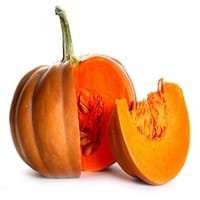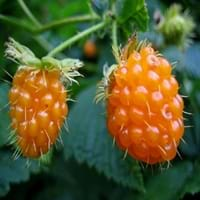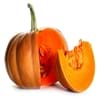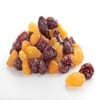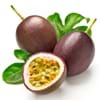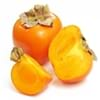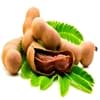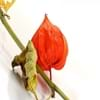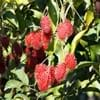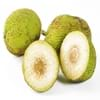Health Benefits
Arthritis treatment, Cancer prevention, High Cholesterol Regulation, Lower blood pressure, Helps Prevent cataract, Prevents gall stones, Ulcer treatment, Weight loss properties
Cancer prevention, Improves stomach health, Weight loss properties
General Benefits
Boosts respiratory health, Eliminate parasites and infections, Protects against birth defects, Strengthens bones
Anti oxidant properties, Digestive aid, Eye care, Healing of wounds, Improves eye vision, Maintains healthy cholesterol level, Strengthens bones
Skin Benefits
Heals sunburn, Hydrates skin, Skin rejuvenation
Anti-aging benefits, Reduces wrinkles
Hair Benefits
Regulates hair growth
Protects hair, Regulates hair growth
Allergy Symptoms
Abdominal cramps, Anaphylaxis, Digestive Problems, Dizziness, Eczema, Fainting, Hives, Inflammation, Itching, Tingling sensation in wrist and face, Vomiting, Wheezing
Abdominal pains, Itching, Swelling of mouth, tongue or lips
Side Effects
Kidney and gallbladder diseases
Allergic reaction
Best Time to Eat
Along with meal, Don't eat after meal, Morning time (before lunch)
Best if taken as a breakfast (or empty stomach), As a snack in the late afternoon, Don't eat after meal, Morning time (before lunch)
Vitamin B5 (Pantothenic Acid)
Vitamin C (Ascorbic Acid)
Vitamin K (Phyllochinone)
Lutein+Zeaxanthin
Not Available
Phytosterol
Not Available
Calories in Fresh Fruit with Peel
Calories in Fresh Fruit without Peel
Not Available
Calories in Frozen Form
Not Available
Not Available
Calories in Dried Form
Not Available
Not Available
Calories in Canned Form
Not Available
Season
All seasons
All seasons
Varieties
Jarrahdale, Peanut, Lakota, Cow, Sugar, Caribean, Red kuri, Buttercup and Pink lady
Golden ruby and Olympic Double
Color
Blue, Green, Orange, Red, White
Pink, Pink red, Salmon, Salmon yellow
Inside Color
Creamy Yellow
Pink
Taste
Creamy, Soft, Sweet
Sweet
Origin
Mexico
North America
Soil Type
Clay loam, Sandy loam, Well-drained
Loam
Climatic Conditions
Warm to hot climate
Moist
Facts about
- The name pumpkin has its roots in the Greek word ‘pepon’, meaning ‘large melon’.
- The largest pumpkin ever grown weighed 1,140 pounds.
- Pumpkins were once known for removing freckles & curing snake bites.
- The name salmon berry is due of the resemblance with 'salmon roe'.
- In 1 kg of fruit, there are total 315,250 seeds.
- Salmon berry tree leaves act as an excellent replacement for tea.
Spirits
Yes
Not Available
Cocktails
Yes
Not Available
Top Producer
China
United States of America
Other Countries
Egypt, India, Indonesia, Iran, Italy, Mexico, Russia, Spain, United States of America
Canada, Mexico
Top Importer
United States of America
Not Available
Top Exporter
China
Not Available
Botanical Name
Cucurbita maxima
Rubus spectabilis
Synonym
Cucurbita pepo, Squash
Not Available
Subkingdom
Tracheobionta
Tracheobionta
Division
Magnoliophyta
Magnoliophyta
Class
Magnoliopsida
Magnoliopsida
Subclass
Dillenhidae
Rosidae
Order
Cucurbitales
Rosales
Family
Cucurbitaceae
Rosaceae
Species
Cucurbita mixta
R. spectabilis
Generic Group
Not Available
Not Available
Difference Between Pumpkin and Salmonberry
We might think that Pumpkin and Salmonberry are similar with respect to nutritional value and health benefits. But the nutrient content of both fruits is different. Pumpkin and Salmonberry Facts such as their taste, shape, color, and size are also distinct. The difference between Pumpkin and Salmonberry is explained here.
The amount of calories in 100 gm of fresh Pumpkin and Salmonberry with peel is 26.00 kcal and 47.00 kcal and the amount of calories without peel is 30.00 kcal and Not Available respectively. Thus, Pumpkin and Salmonberry belong to and category.These fruits might or might not differ with respect to their scientific classification. The order of Pumpkin and Salmonberry is Cucurbitales and Rosales respectively. Pumpkin belongs to Cucurbitaceae family and Salmonberry belongs to Rosaceae family. Pumpkin belongs to Cucurbita genus of Cucurbita mixta species and Salmonberry belongs to Rubus genus of R. spectabilis species. Beings plants, both fruits belong to Plantae Kingdom.
